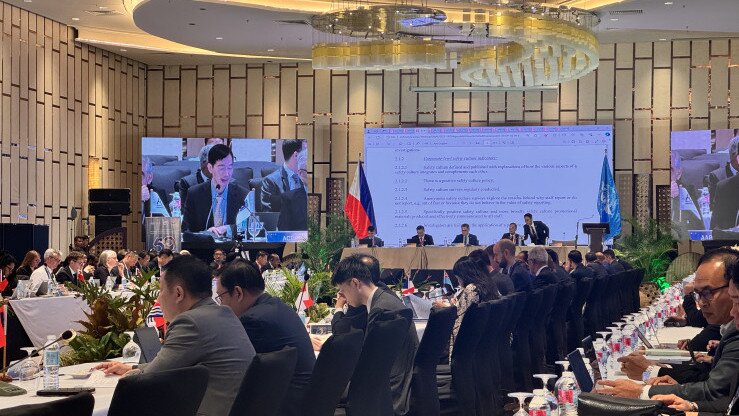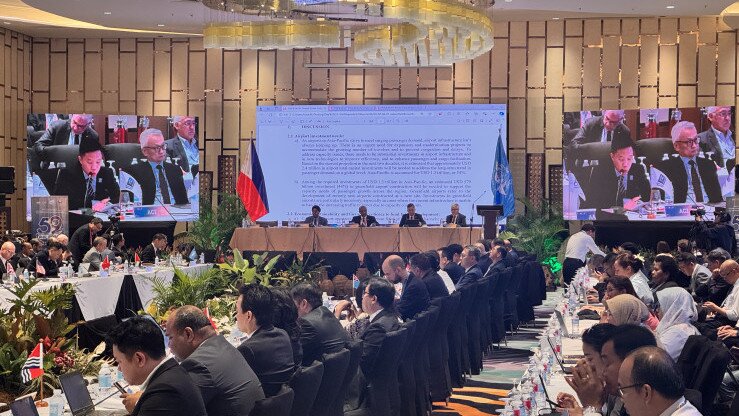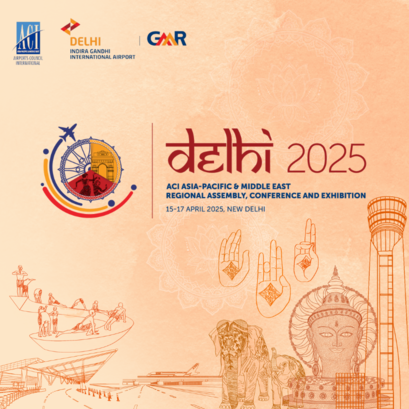
Infrastructure Development is Critical for Future of Airports Industry: ACI Asia-Pacific & Middle East
- 2024-10-21
21 October 2024, Cebu, Philippines: As global air traffic rebounds to pre-pandemic levels, Airports Council International Asia-Pacific & Middle East (ACI APAC & MID), the trade body of airports representing 617 airports from 46 countries and territories, has reiterated its call for economic sustainability and financial resilience as critical components for infrastructure development to support the expected growth in the region’s air transport sector.
At the 59th Conference of Directors General of Civil Aviation for Asia and Pacific Regions in Cebu, Philippines, ACI APAC & MID presented an outlook on the future of the aviation industry, as well as made several recommendations. ACI APAC & MID’s proposals were supported by ICAO urging states to consider implementing the recommended initiatives.
Airport economic sustainability and financial resilience are key pillars for infrastructure development
- With the Asia-Pacific region growing at an annual rate of 5.8%, more than the global average of 4.3%, the region would account for 40% of global passengers over the next two decades. The 3.4 billion passengers that took to the skies in 2023 are expected to swell to over 8.7 billion by 2042.
- Meeting this demand requires significant investments in infrastructure. ACI APAC & MID’s long-term forecast estimates a capital expenditure of US$ 2.4 trillion globally, with Asia-Pacific alone needing US$ 1.3 trillion, including US$ 579 billion for greenfield airport development.
ACI APAC & MID highlighted the financial stress airports are facing, especially following the economic blow of the COVID-19 pandemic. In conclusion, the Conference encouraged States and Administrations to support, as appropriate, the operations and infrastructure investment in airports.
Security-by- Design
With the significant forecasted growth in airport infrastructure investment, ACI APAC & MID, through an Information Paper, stressed the need to integrate security considerations into the design phase for any new infrastructure to improve eventual operational performance. The Association urged States to work together with the airports to ensure aviation security elements to be adequately considered in the design phase of new infrastructure in order to improve operational performance.
Environmental Sustainability
The Conference urged States to engage in ACI APAC & MID's Net Zero Roadmap programme to ensure sustainable air transport. ACI APAC & MID has recently partnered with Riyadh Airports Company and Mactan Cebu International Airport to assist the airports establish a net zero roadmap.
Safety
ACI APAC & MID, in partnership with industry associations such as CANSO, Flight Safety Foundation, International Federation of Air Line Pilots Associations, and International Federation of Air Traffic Controllers' Associations, regulators and airport operators to encourage safety culture. Recognizing the critical role safety plays in the long-term resilience and growth of the aviation sector, the Conference urged States and Administrations to adopt the positive safety culture indicators as part of their safety assessments.
Mr. Stefano Baronci, Director General of ACI Asia-Pacific & Middle East, said: "With the Asia-Pacific region driving the global growth in air travel, investing in modern, efficient, and sustainable airport infrastructure is no longer an option-- it is now become a necessity. As airports continue to play a crucial role in the socio-economic development of their regions, they must be equipped to meet growing demand while maintaining financial viability for decades to come. At the same time, as the industry evolves, we must also prioritise enhanced safety, explore innovative ways to strengthen aviation security, promote diversity, and inclusion, and greater sharper focus on environmental sustainability."
ACI APAC & MID also presented an information paper highlighting the importance of promoting Diversity and Inclusion in the airport workforce reinforcing that a diverse and socially inclusive workforce will help address shortage of workforce and improve organisational performance.
- CATEGORY
- COUNTRY / AREA
- Hong Kong SAR
- AUTHOR
- ACI Asia-Pacific & Middle East











